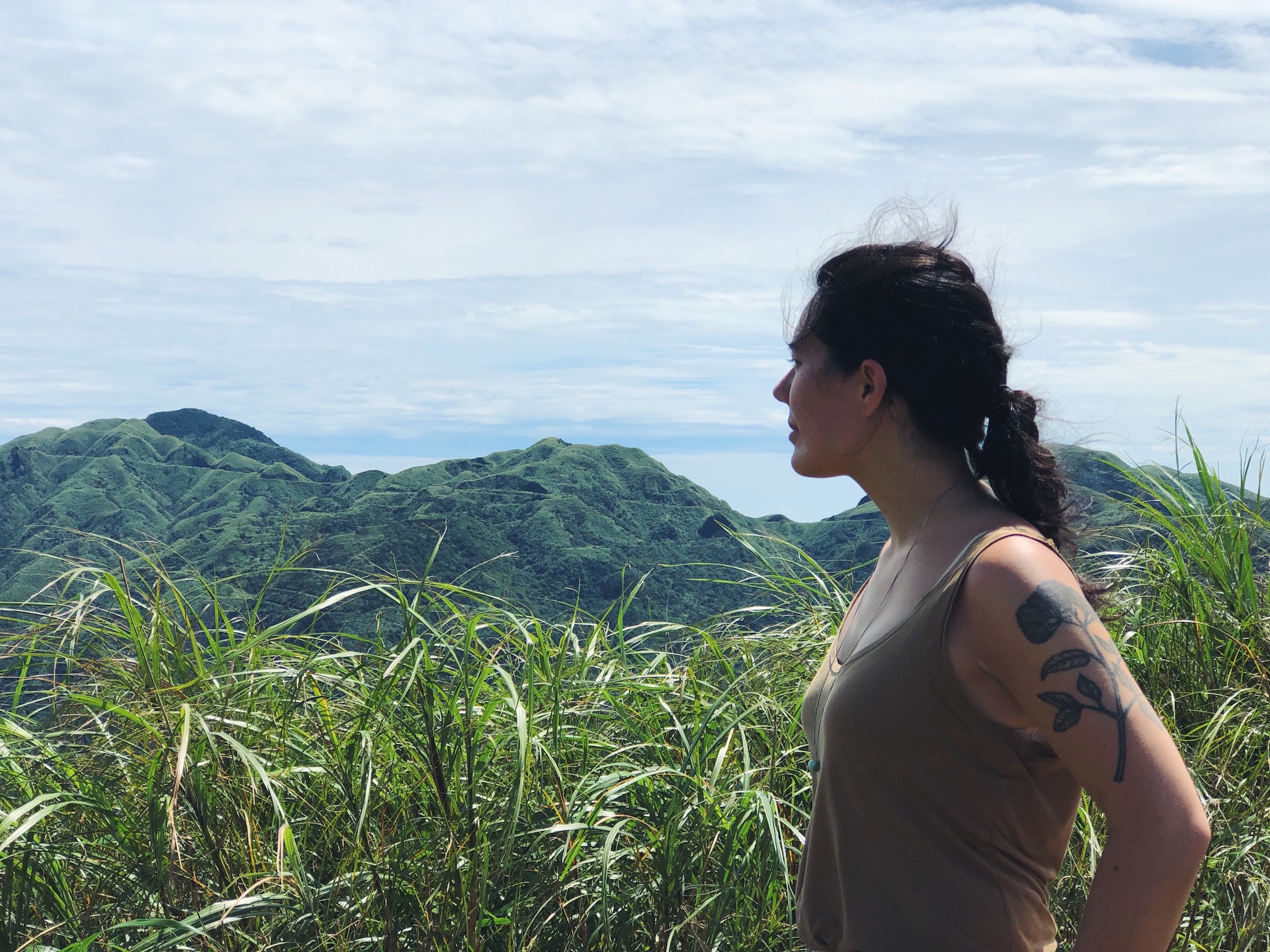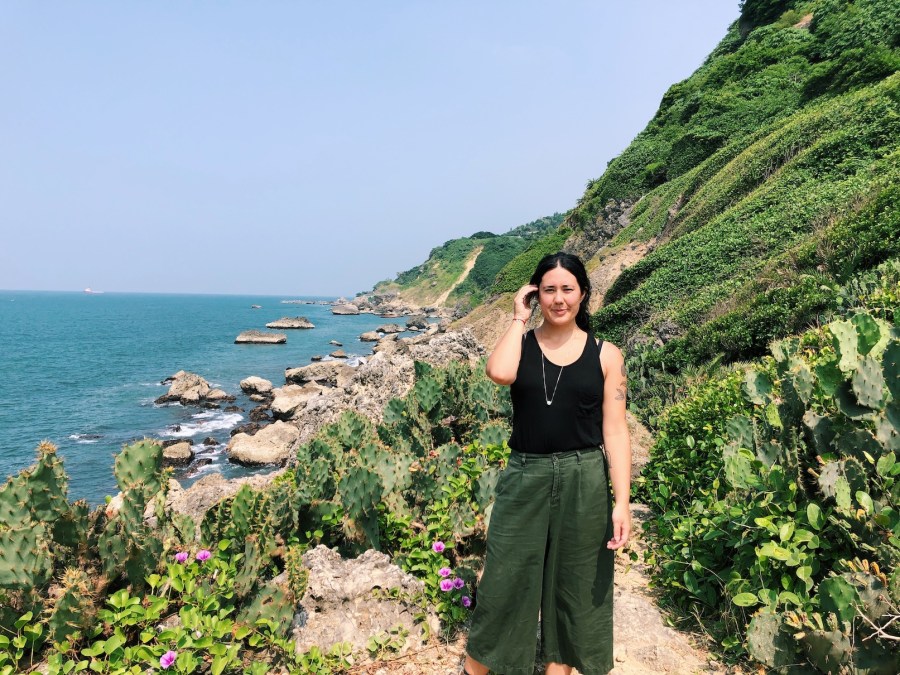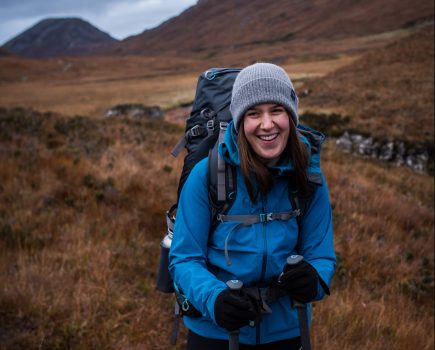We talk to Boardman Tasker Award-winning writer Jessica Lee about inspiration, identity and the changing face of nature writing.
Born in Canada to a British father and a Taiwanese mother, Jessica Lee has always been fascinated by the relationship between landscape and identity. In her latest book, Two Trees Make a Forest – winner of the 2020 Boardman Tasker Award – she explores the mountains, forests and waters of Taiwan, combining reflections on her own ancestral connection to the island with insights into its geography, culture and political history.
Main image: Jessica Lee in Taiwan. Photo: Ricardo A Rivas
Congratulations on winning the Boardman Tasker Award! Two Trees Make a Forest is more thematically diverse than some of the past winners, but the mountains of Taiwan are always present in the background. Did you make a conscious choice to have the mountains a central theme of the book, or did it happen naturally?
In a way it was unavoidable – there was no real way of writing a story about Taiwan and its landscapes that didn’t focus on the mountains. The mountains are the backbone of the country in so many ways and such a big part of the cultural identity. But they were also a really compelling choice of subject matter because Taiwan is so geographically precarious. The mountains are getting taller all the time and there are so many landslips and earthquakes… That paired well thematically when it came to writing about gaps in family history and the upheaval of migration.
What inspired you to write Two Trees?
I had been trying to write my grandparents’ story for well over a decade when I started the book. I knew they had lived through some really difficult history, and I knew I wanted to write their story but never found a way to do it. Then I found a letter of my grandfather’s. It was a memoir of his life and he wrote it when developing Alzheimer’s. I was going through a bit of an identity crisis, as many of us do in our late twenties, and thinking that I hadn’t really paid enough attention to my mum’s side of the family (she grew up in Taiwan and my grandparents were from China). I thought, this is the moment to devote some energy to this.
In your first book, Turning: A Swimming Memoir, you write about your attempt to swim in 52 German lakes over 52 weeks. You’ve said that wild swimming is cleansing and that it helps focus your attention and clear your mind… do you find the same about getting out into the mountains?
Absolutely. I find it just so meditative. That’s partly because of the continual movement of hiking in general. But I really like being in the mountains because you can never wander off into daydreaming, you really do need to stay focused. I can get overwhelmed by my own emotions, so I find that material focus – being forced to pay attention to what’s under my feet – really helpful for me.
In both books, you explore your own life and backstory through the medium of nature and the environment. Do you see your identity as intertwined with the landscapes you’ve lived in and explored?
My sense of identity is hugely tied to land. I’ve moved around a lot, but I’m also an environmental historian so I tend to pay extra attention to land! But I think that, for so many of us, landscapes shape what we think of as beautiful, what we look for in the world and how we move through it. And so paying attention to the land in that regard allows us to understand so much more about ourselves and our families than we can otherwise articulate. It’s easy for people to forget that the environment isn’t separate from human concerns. We shape it and it shapes us.

Processed with VSCO with f2 preset
You’ve talked before about finding home in the landscape. Is the search for ‘home’ partly what drives your explorations?
I think it’s possibly been the strongest theme of my work, the question of home and what home means. For a long time I was occupied by that idea – where is your home? You must pick one! You must choose! But the more I’ve thought and written about it, the more I think I will never pick one home. There will always be multiplicitous homes in my life. I think this often applies to people with migration stories – they may have more than one home, and that’s valid.
How have the restrictions on exploration imposed by lockdown in the UK affected you?
It’s been a mixed bag. I got a dog a couple of years ago and I have to get out every day, so that’s really helped – to be out and walking. I’m definitely missing the freedom of being able to go where I want and swim, though. I was living in Germany a few months ago and one of the real blessings there was that, even in lockdown, I could cycle out to the forest, jump in a lake and be on my own. Now I’m back in the UK, that’s not possible. In balance, though, I’ve been lucky – I can get out every day, although I definitely miss that freedom of the long day out on my bike in the wind.
Have you managed to do much walking in the UK’s mountains?
Only a little bit. I’ve lived here on and off for most of my adult life and my I have spent a lot of time in Snowdonia and the Brecon Beacons. But most of that exploring has been done with my family, which is a different kind of experience to getting out by yourself! My dad is actually from Wales, although I haven’t written much about his side of the family yet.
Clearly a theme for your next book! Have you got any more ideas in the pipeline?
I am trying to work on a new book proposal. I took a bit of a break after Two Trees – it’s done well, particularly in Canada, so I’ve had to do quite a lot on the promotion side of things – but I’m starting to think now about what to do next.
You’re also the founding-editor of the Willowherb Review. Tell us a bit more about that…
I set up the Willowherb Review in 2018 with the aim of creating a space that would celebrate nature writing by writers of colour. There’s a lot of talk about the lack of diversity [in writing] and why we’re not hearing enough voices, so I thought: why don’t we just create a space that platforms writers of colour and puts their voices out into the world? We publish fiction, non-fiction, poetry – anything broadly related to nature, place and environment. And it’s not just about platforming writers of colour but creating a space that feels inviting to them. In the first year of the Willowherb we received around 60 submissions, and in our most recent year that increased to over 300. There’s momentum there, a real sense of change. I’m optimistic that we’re going to hear from so many more writers who haven’t yet entered the nature writing space.
Interview by Hanna Lindon







